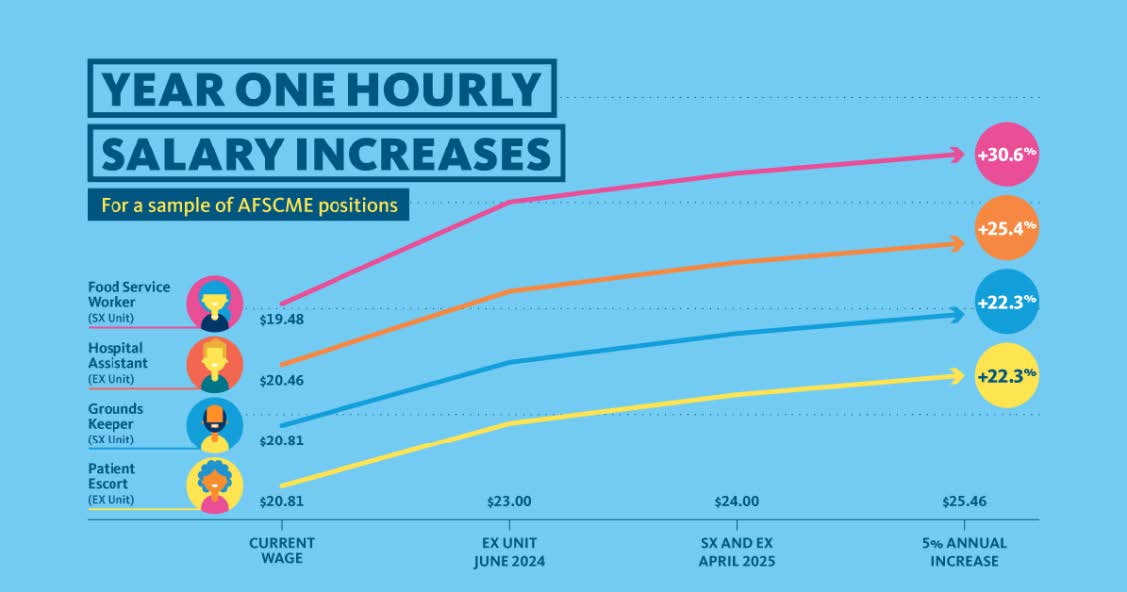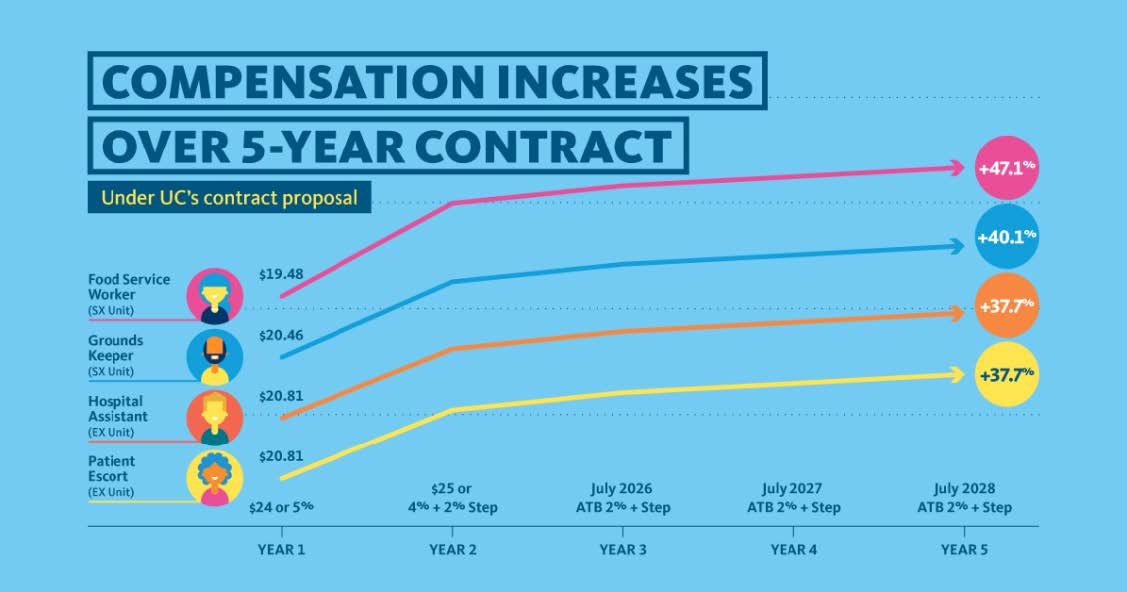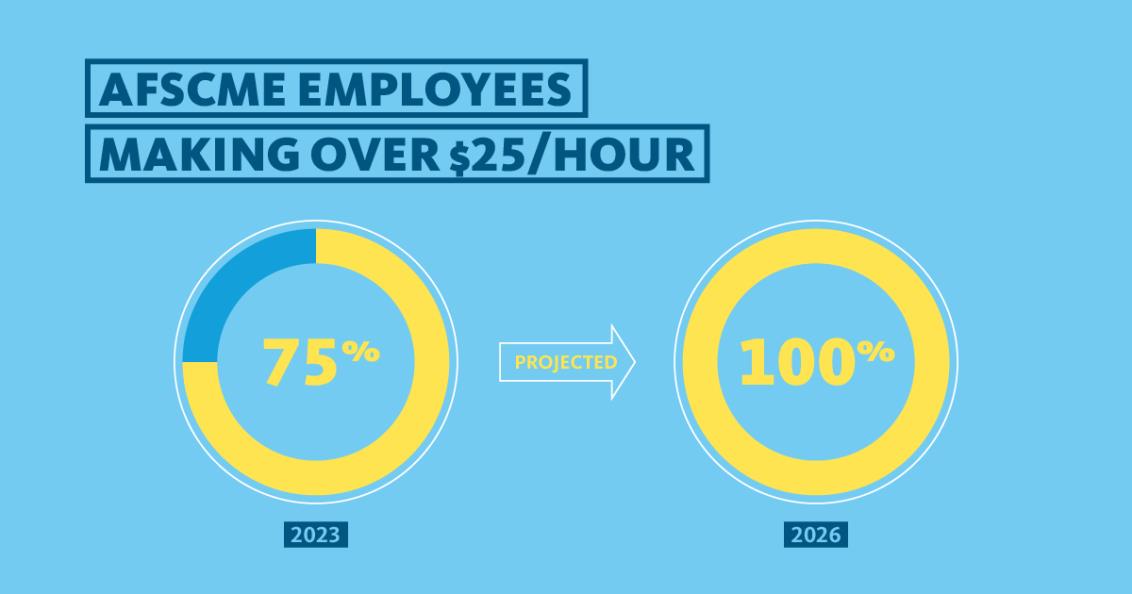During its February 22-23 bargaining session with the American Federation of State, County, and Municipal Employees union (AFSCME), UC demonstrated its commitment to fair and competitive employee pay by proposing significant multi-year pay raises for Patient Care Technical and Service employees.
UC’s proposals would establish a minimum wage of $24/hour, increasing pay for the lowest-paid employees represented by AFSCME and keeping pay for this bargaining unit competitive. For example, under the current proposal effective April 2025, pay for a Food Service Worker earning $19.48 per hour will rise to $24.00 per hour, an increase of almost 19%. Similarly, a Hospital Assistant making $20.46 per hour will get a 17.3% increase to $24.00 an hour. In April 2025, covered employees for whom the adjustment to $24/hour is less than a five percent increase will receive an increase inclusive of their base hourly rate that adds up to five percent (5%). After four bargaining sessions, UC has put a proposal on the table that directly addresses AFSCME's public “25/5” requests.
UC’s proposals exceed required state pay minimum
Our proposals align with — and exceed — California's new minimum hourly wage mandate (SB525), which will gradually increase minimum hourly wages for healthcare workers over the next several years. UC’s offers are broader than the law, raising the minimum wage for all AFSCME-represented employees – not just those covered by new state legislation- to $24 in 2025 and $25 in 2026. In addition, all bargaining unit members will receive an overall average wage increase totaling 26% in both bargaining units (individual increases may vary) over the course of five years. Service unit members covered by SB 525 will see their pay increase to $23/hour on June 1, 2024, and will also receive a step increase, if eligible, for a total 5% increase in the first year. Pay for all Patient Care Technical unit members will be raised to $23/hour as of June 1, and they will also receive the current contract’s 2% step increase (if eligible) in July.
Proposal includes substantial wage increases in year one of the contract*

*Numbers assume current UC employee with hourly wage of $23-$25
Lowest-paid workers see highest increases
Under the current contract, Service unit members will receive a 2% step increase in July and a 3% across-the-board raise in October. For Patient Care Technical unit members, the current contract provides a 3% across-the-board raise in April and a 2% step increase in July. If AFSCME agrees to the University’s proposal, employees represented by AFSCME will see a minimum of 9% wage increases in the first two years of the new contract and 2% per year after that, with the lowest-paid bargaining unit members seeing the highest pay increases. For example, in the graphic above, the Food Service Worker at $19.48 per hour today would go up to $24.00 by April 2025, a 26% increase. Eligible employees will also receive a step increase each year.
UC’s proposals offer substantial pay increases to help offset cost-of-living expenses
Under UC’s proposals, all bargaining unit members would receive substantial pay increases over the life of the contract, with some positions seeing wage increases totaling as much as 47% over five years. While UC has no control over statewide rents or housing costs, we know the cost of living in California is high. By providing employees with competitive wages and regular pay increases, we aim to help our employees with their cost-of-living expenses.
Predictable annual compensation increases throughout the five-year contract *

*Numbers assume current UC employee with hourly wage of $23-$25
75% of AFSCME-represented employees currently make over $25 per hour, UC proposes to reach 100% by 2026

To retain and support UC employees who are represented by AFSCME, we will continue to prioritize providing fair and competitive wages that reflect the critical services both units provide. We’ll send up-to-date information so you understand what we are doing and why. Thank you for your important contributions to the University of California.